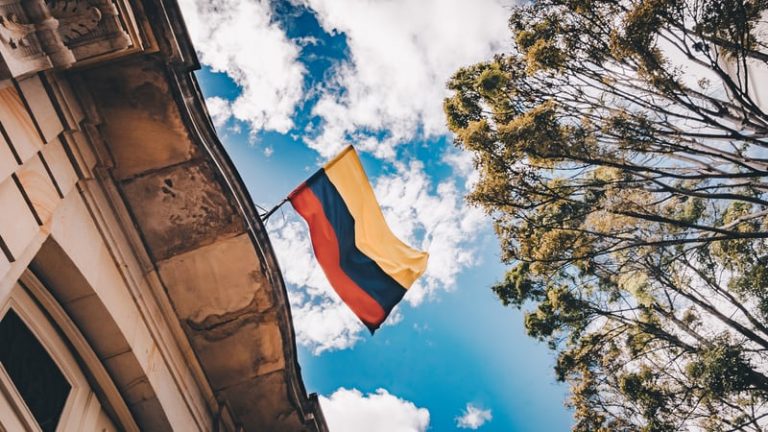On Thursday, Nov. 21, hundreds of thousands of Colombian protesters marched through the streets of
Bogotá, Colombia, as well as other cities around the country. Colombian President Ivan Duque is the
target of these protests ever since his government announced new economic reforms.
“[Duque’s] approval ratings have plummeted amid an uptick in violence,” said Megan Janetsky, a
reporter for Al Jazeera.
The issues grew for the government during more recent weeks when criminal groups began targeting
indigenous people. A bombing was aimed at the Revolutionary Armed Forces of Colombia (FARC), but
ended up killing at least eight children. This mishap led the Duque’s defense minister to resign.
What began on Nov. 21 as a peaceful protest quickly turned violent. Rocks and bottles of tear gas were
being thrown between police and protestors after the latter began chanting, “Get out Duque.”
Protesters from all around the country traveled to the capital to raise their voices. Multiple groups, each
with their own complaints, had joined the protests. Students began protesting the corruption and
underfunding of education, and social leaders denounced the assassinations and other threats against
them.
Almayari Barano Yanakuna traveled from her indigenous village in Western Colombia with a message for
Duque.
“Today, I want to send the message that they respect our ancestral territories, that they respect life,”
she said on Nov. 21 in an interview with Janetsky. “We don’t want any more killings.”
The first civilian life was claimed on Nov. 23. According to The City Paper, Dilan Cruz was an 18-year-old
student at Colegio Ricaurte who was participating in a demonstration in support of the strike when
violence erupted between the protesters and ESMAD (the National Police’s anti-riot squad). Cruz died
Nov. 25 after being shot in the head, despite undergoing operation and resuscitation.
Following his death, Mayor Peñalosa of Bogotá and Police Chief General Penilla held a press conference
to express their condolences to Cruz’s family, as well as to the 130 other civilians and families of the 340
police injured during the national strike.
The Bogotá Post reported that the national strike committee published a list of demands for the
government including withdrawal of the draft tax reforms, dissolution of ESMAD and a call for the
government to implement the Havana peace agreement from 2016.
Duque held a meeting on Nov. 26 with protest leaders, giving the protesters a space to air their
grievances and wishes. When leaders realized Duque didn’t want to discuss their terms, they left and
announced that protests would continue until the government was willing to listen.



